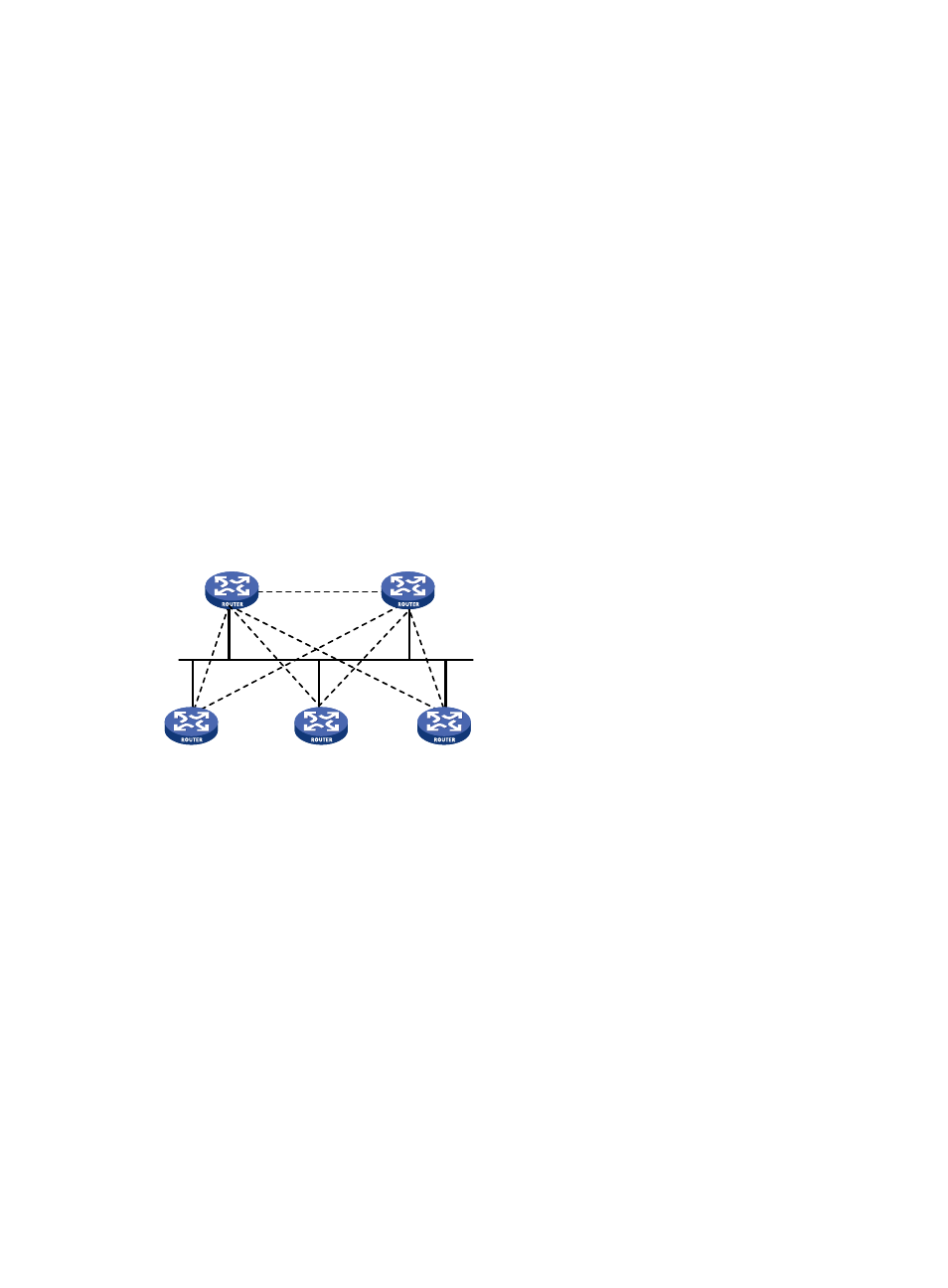Dr and bdr, Introduction, Dr and bdr election – H3C Technologies H3C S10500 Series Switches User Manual
Page 78

63
DR and BDR
Introduction
On a broadcast or NBMA network, any two routers need to establish an adjacency to exchange routing
information with each other. If n routers are present on the network, n(n-1)/2 adjacencies are required.
In addition, any topology change on the network results in traffic for route synchronization, which
consumes many system and bandwidth resources. The Designated Router (DR) was introduced to solve
this problem. On a network, a DR is elected to advertise routing information among other routers.
If the DR fails, routers on the network have to elect another DR and synchronize information with the new
DR. It is time-consuming and prone to routing calculation errors. The Backup Designated Router (BDR)
can solve this problem.
The BDR is elected along with the DR and establishes adjacencies with all other routers. When the DR
fails, the BDR becomes the new DR in a very short time. Meanwhile, other routers elect a new BDR.
Routers other than the DR and BDR are called “DRothers”. They do not establish adjacencies with one
another. Thus the number of adjacencies is reduced.
In
, solid lines are Ethernet physical links, and dashed lines represent OSPF adjacencies. In the
network with the DR and BDR, only seven adjacencies are needed.
Figure 23 DR and BDR in a network
DR
BDR
DRother
DRother
DRother
DR and BDR election
Routers in a network elect the DR and BDR according to their router priorities and router IDs. Routers with
a router priority value higher than 0 are candidates for DR/BDR election.
The election votes are hello packets. Each router sends the DR elected by itself in a hello packet to all the
other routers. If two routers on the network declare themselves as the DR, the router with the higher router
priority wins. If router priorities are the same, the router with the higher router ID wins. In addition, a
router with router priority 0 cannot become the DR or BDR.
•
DR election is available on broadcast and NBMA interfaces rather than P2P and P2MP interfaces.
•
A DR is an interface of a router and belongs to a single network segment. Another interface of the
router may be a BDR or DRother.
•
If a router with the highest router priority is added after DR/BDR election, the router cannot become
the DR immediately.
•
The DR may not be the router with the highest priority in a network, and the BDR may not be the
router with the second highest priority.